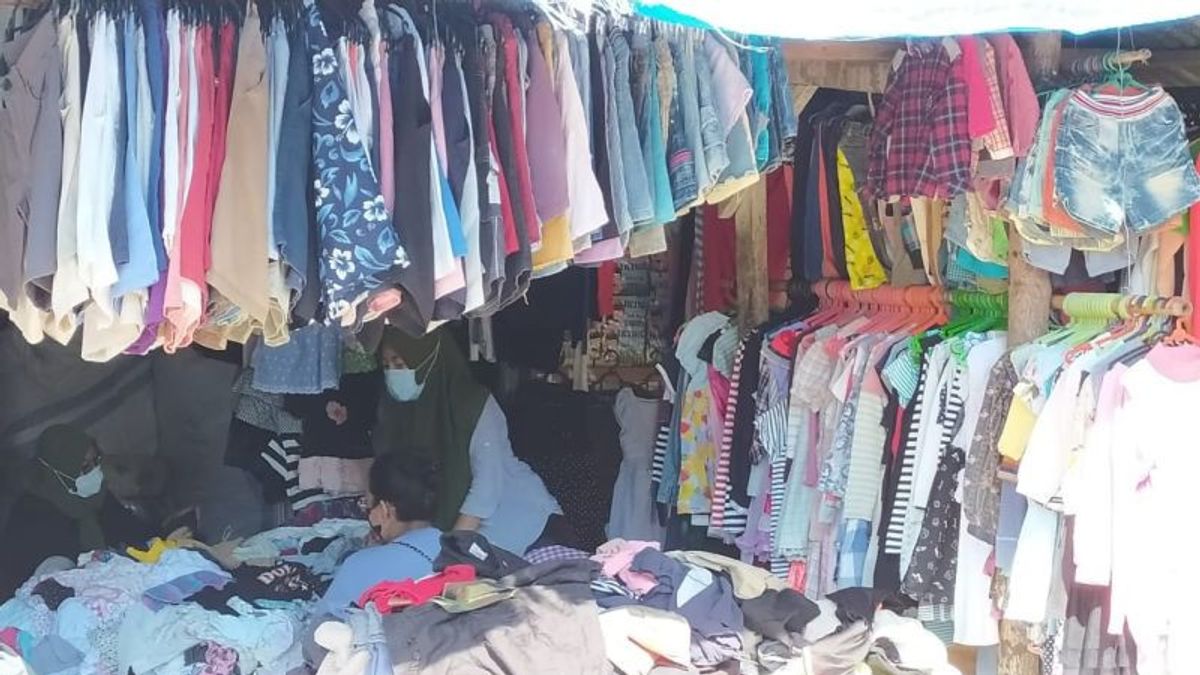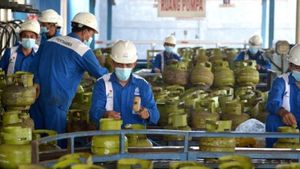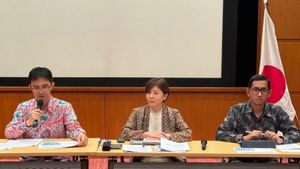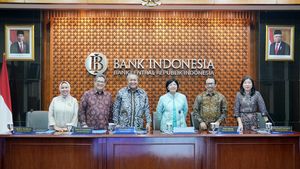JAKARTA - The Ministry of Cooperatives and SMEs (Kemenkop UKM) views that currently imports of illegal used clothes are still rife in Indonesia.
Deputy for SMEs at the Ministry of Cooperatives and SMEs, Hanung Harimba Rachman, said the practice of violating the law destroyed Indonesia's economy.
"Not only threatening, there are still a lot of illegal imports. That's if I look at it, if it was considered subversive in the past, it was because it destroyed our economy," said Hanung at the office of the Kemenkop UKM, Jakarta, Friday, February 23.
Hanung emphasized that strict law enforcement is needed to eradicate the import of these illegal used clothes.
"I think law enforcement should be stricter," he said. For the supervision of imports, the government has actually made regulations governing the supervision of goods from post border to border supervision. The regulation is regulated in the Regulation of the Minister of Trade (Permendag) Number 36 of 2023 concerning Import Policies and Regulations.
The regulation was set on December 11, 2023. Hanung said that the success of monitoring illegal imports from the new mechanism needed to take time.
"Because there is still a lot of abuse, maybe one of these facilities also needs to be checked, misuse of imported facilities. We have to see," he concluded.
Based on VOI records, these illegal used import clothes not only disturb MSME actors, but have an impact on the impact of occupancy in Indonesian shopping centers.
The reason is, the Indonesian Shopping Center Management Association (APPBI) said that the occupancy of shopping centers could return to 90 percent in 2024 if illegal imports that interfere with the domestic trade climate can be eradicated by the government.
"Actually, what interferes with local products are illegal goods. There are many illegal goods, both online and in-person, such as used clothes and so on that interfere with local products," said APPBI Chairman Alphonzus Widjaja during a press conference in the Kuningan area, South Jakarta, quoted Friday, January 19.
Alphonzus revealed that the occupancy of shopping centers before the COVID-19 pandemic reached 90 percent, then fell 20 percent to 70 percent during the COVID-19 pandemic.
Once the pandemic status is revoked, retailers are optimistic that the occupancy rate will continue to improve.
SEE ALSO:
Evidenced by the occupancy in 2023 which increased to 80 percent and is targeted to reach 90 percent again this year.
The increase in occupancy was also accompanied by the opening of a number of targeted malls before Lebaran 2024.
Even so, Alphonzus said, the target of increasing occupancy and opening new shopping centers was threatened not to be achieved due to the increasing number of illegal products.
Caption: Deputy for SMEs at the Coordinating Ministry for SMEs Hanung Harimba Rachman. Photo: Theresia Agatha/VOI
The English, Chinese, Japanese, Arabic, and French versions are automatically generated by the AI. So there may still be inaccuracies in translating, please always see Indonesian as our main language. (system supported by DigitalSiber.id)

















